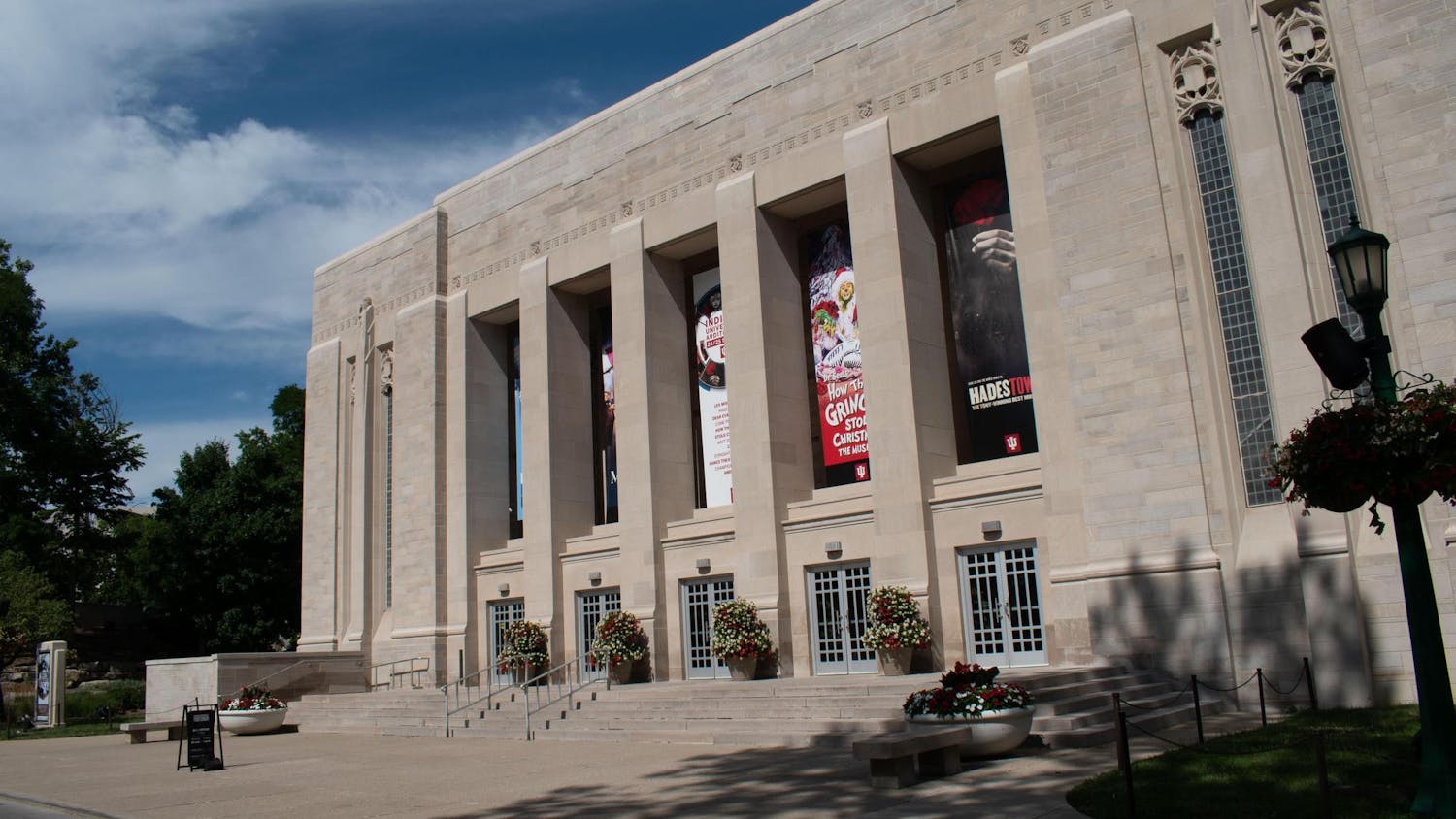Charleston Sanders, a masters student, recently said, "The best job in the world is doing something you love and being able to pay the bills doing it. I want to make a difference in people's lives, and music will be one of the avenues through which I can make that difference."\nThat difference is why so many people come to IU's School of Music. Most students at IU have at least heard of the School of Music, but not many realize it is consistently ranked among the top three music schools worldwide, and is the largest music school in the world. Many say it is one of the primary reasons IU is so well known, although few students at IU know very much about it.\nThe School of Music has been around almost as long as the University but began to gain recognition under Dean Charles D. Campbell in 1910. Since then, it has been under the leadership of such notable deans as Barizille Winfred Merrill (1910), after whom Merrill Hall was named, Wilfred C. Bain (1947) and most recently, Gywn Richards (2001). Committed to making the School of Music a respectable institution throughout the world, these men sought out world-renowned professors and teachers. Director of Music Admissions Jeff Clanton said they have also been "very aggressive in getting the best facilities available for music anywhere -- and it has become an integral part of the University."\nStudents have access to some of the best facilities in the country the school of music. The Musical Arts Center, which is rumored to have a stage that is one inch bigger all the way around than that of the Metropolitan Opera, and the recently built Ford-Crawford and Auer Halls that seat 150 and 450 people, respectively, are examples of such venues.\nOne hundred-fifty full-time faculty members, including the famous Metropolitan Opera singer Virginia Zeani, jazz master David Baker and seasoned cellist Janos Starker, in addition to the facilities, help the School of Music provide one of the most well-known student programs in the world.\nEvan Rogister, a senior in the voice program, said there are moments when it just hits him how lucky he is to work with such amazing faculty.\n"Sometimes I stand at the piano listening to (my professor) make a point, and I think, 'This is one of the great masters of the operatic stage, and he's spending his time teaching me,'" Rogister said of his teacher. \nIU School of Music's mission statement is "to provide distinguished instruction and outstanding opportunities for performance, composition, research and teacher training…To prepare students for careers (in all aspects of music)…and to enrich the lives of students, faculty, community, the state, the nation and the world with performances of a wide variety of music."\nStudents who come here go through a rigorous music education, including five semesters of music theory, four of ear training, four of music history, and the requirement to take private studio lessons and ensemble every semester that they are in the school. It is a competitive atmosphere, but some students think the competition lends itself to a positively charged environment that stimulates the student to excel and prepares them for the professional world.\n"(After IU) you can go out into the real world with your head held high, because you've been through and survived one of the greatest musical learning institutions out there," said Professor of voice Alice Hopper.\nAnd as for the many claims that IU is a "music factory," Clanton said, "If you want to come here and be a number, that's up to you. You have to be proactive in going after what you want, and then I think you will find that IU is the kind of school that you can have a really good experience at."\nIt's not all studying, however. Once the music theory homework is done, there are more than 1000 recitals a year, as well as eight operas and numerous performances from the multiple choirs, bands, orchestras and ensembles that are a part of the music school.\n"I love it! The music facilities are generally excellent, particularly the recital halls and the library," said senior Janet Ross, a music performance major. "I love having more than 1000 different first-rate performances to attend each year. I couldn't possibly go to even half of them, but with so many things going on all the time, there is always something that interests me." \nIt's not easy getting into the School of Music. It requires a lot of discipline, hard work and a significant amount of talent.\n"Talent is one of the big things, but attitude is important," said Professor of jazz studies David Baker. "I look for students who are willing to work -- and who have discernment and perseverance. I look for students who have to be in music -- it's so compelling for them."\n Clanton stressed the importance of attending as many workshops as one can in order to gain experience with mock auditions and improving one's repertoire.\n"Remember to be personable and to relax," Clanton added. "(When you're auditioning), nerves can get in your way if you don't learn to focus them in the right direction."\n"The more natural you can be, the better," Hopper agreed. "We want to see who you really are."\nAt the same time, faculty members stress how important it is to be professional in the audition environment.\n"Allow the music to speak to you," Hopper said. "Don't just play the music on the page -- you can't be afraid to interpret it for yourself and really make the music come alive"
Beginning a life of opportunity
School of Music one of nation's best
Get stories like this in your inbox
Subscribe





